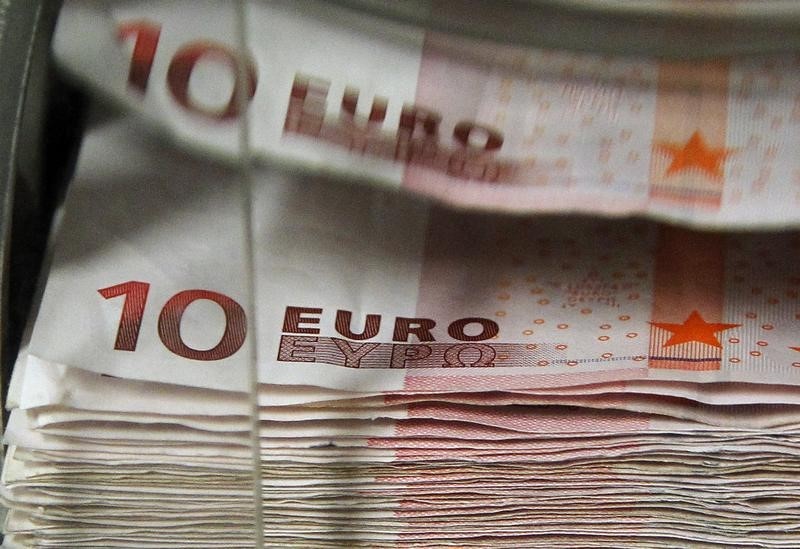(Updates prices, adds comment, changes byline, dateline; previous LONDON)
* Euro on pace for weakest week in three months
* Euro could trade toward 12-year low vs dollar - strategists
* Questions arise on ECB impact on Fed policy
By Gertrude Chavez-Dreyfuss
NEW YORK, Oct 23 (Reuters) - The euro stumbled to a two-month low against the dollar on Friday, still struggling after the European Central Bank a day earlier signalled further monetary easing to fire up an economy grappling with sluggish growth and low inflation.
Europe's common currency was down 2.8 percent versus the dollar for the week, on track for its worst weekly showing in three months. It fell to a one-month low against the yen and for the week was down 1.4 percent, its largest weekly percentage fall in six weeks.
ECB President Mario Draghi on Thursday said the bank could accelerate its bond purchases, extend its asset-buying program, and further cut its deposit rate, currently at -0.2 percent.
"Draghi not only delivered, but he exceeded many dovish expectations," said Omer Esiner, chief market analyst at Commonwealth Foreign Exchange in Washington. "The risk of more monetary stimulus in the euro zone is broadly negative for the euro."
Strategists and traders were debating whether the sell-off had further to run. Banks including Goldman Sachs (N:GS) and Deutsche Bank (DE:DBKGn), which have been calling all year for the euro to fall below parity with the dollar, were all back on the offensive.
Goldman said the potential for further falls in the euro was "still substantial", predicting a return to 12-year lows around $1.04 hit in March if the ECB delivers more easing.
On Friday, the euro fell as low as $1.1017 EUR= , the lowest since around mid-August, and was last at $1.1033, down 0.7 percent. Against the yen, the euro slid 0.4 percent to 133.60 yen EURJPY= .
IMPACT OF ECB POLICY ON FED
The dollar was up 0.3 percent versus the yen at 121.02 yen JPY= . It was up 0.6 percent against a currency basket at 96.943 .DXY , boosted by gains versus the euro.
Analysts said that for the dollar to get back toward its 12-year high against the euro, investors will have to price in a higher probability of a rate hike by the Federal Reserve. Yet there are questions as to whether the ECB's dovish comments and the consequent surge in the dollar could delay the Fed tightening policy.
Commonwealth's Esiner pointed out that the Fed may not want to exacerbate dollar strength by raising rates at the same time the ECB is easing.
However, he noted that an easier ECB policy eases fears about emerging markets and reduces market volatility, giving the Fed a window to hike rates before year-end.
